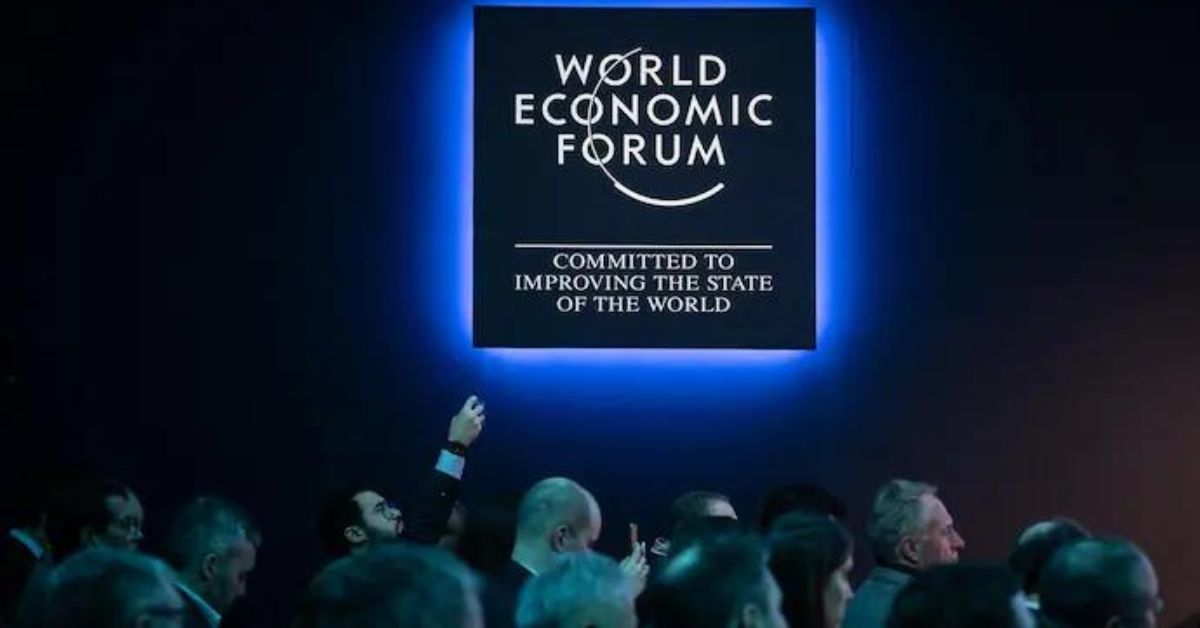Dubai, UAE — The World Economic Forum publishes reports and whitepapers giving context and solutions to global challenges, such as generative AI, to economic uncertainty and the energy transition that dominated headlines in 2023. Here are five of this year’s reports to look back on 2023, but also look ahead to 2024.
Global Risks Report
A new edition of this is coming out in a few weeks, but 2023’s Global Risks Report looked at the biggest risks in the short- and medium-term. In the short-term, January’s report highlighted the risks faced by the cost-of-living crisis, which has seen countries around the world grapple with how to support their citizens, but also how to bring down inflation.
Central banks have raised interest rates across the globe, while governments have responded with measures to financially support the most vulnerable in society.
In July, WEF followed up with a survey of its community of chief risk officers, and what is front of mind for them. They identified four core risks to their organizations over the immediate term, including macroeconomic indicators and supply disruptions.
Fostering Effective Energy Transition
Global progress on the energy transition has stalled, found this year’s Fostering Effective Energy Transition report. Buffeted by a global energy crisis, inflationary pressures and geopolitical instability, the move to clean energy has faced a challenging time.

Consumers in many countries continued to feel the pinch of higher prices, with rising energy costs driving up other prices across global economies. With geopolitical challenges, focus has often shifted to energy security alongside sustainability, which has come at the expense of an equitable transition, argues the report.
However, investment continues to flow, and technological advances provide an optimistic vision for the future of the transition. The final COP28 agreement in Dubai this year, though not explicitly endorsing a fossil fuel phase-out, underscored the need to reduce emission reduction targets of 43 percent by 2030 and 60 percent by 2035 compared to 1990 levels.
Global Gender Gap Report 2023
This year’s Global Gender Gap Report showed that progress to gender parity remains slow, with it set to take a further 131 years to reach full parity.
The situation has recovered to pre-pandemic levels, but the rate of change has slowed. In 2020, parity was forecast to be 100 years away. Reverting back to that timeline, this year’s report found, will take significant speeding up.
Some areas are much closer to parity, though, with the Health and Survival gender gap closed by 96 percent and Educational Attainment by 95.2 percent. Economic Participation and Opportunity gap has only closed 60.1 percent, though, and Political Empowerment by just 22.1 percent.
In October, thousands of women across Iceland, including the country’s Prime Minister, Katrín Jakobsdóttir,went on strike, in protest at the gender pay gap and gender-based violence. It was the first full-day women’s strike since 1975.

Future of Jobs Report 2023
With a global economy facing challenging headwinds, a tight labor market in many major economies, and rapid technological change hitting numerous sectors and professions, the future of jobs and work has been a hot topic this year.
The 2023 edition of the Forum’s Future of Jobs Report explored these trends, and how they’re impacting jobs and skills. Technology, digitalization and sustainability are key drivers of change in the workforces of the future, with the majority of the fastest-growing roles of the next five years linked to technology – for example, AI and Machine Learning Specialists.
The most important skills for workers this year were analytical thinking and creative thinking, and alongside AI and big data skills these are the priority for employers in the next four years as well.
Top 10 Emerging Technologies of 2023
This year’s Top 10 Emerging Technologies list came when one piece of tech was, seemingly, on everyone’s lips – generative AI.
But, our list is far broader and demonstrates technology’s positive impact in shaping our future. From sustainable aviation fuel to flexible batteries and designer phages, this year’s top 10 emerging technologies will likely become increasingly familiar in the years ahead as they help tackle some of our biggest challenges.
For example, what if computing was more sustainable? Technological advances are helping make data centers more environmentally friendly, with innovations to repurpose the heat generated, or artificial intelligence enabling smarter energy use.

